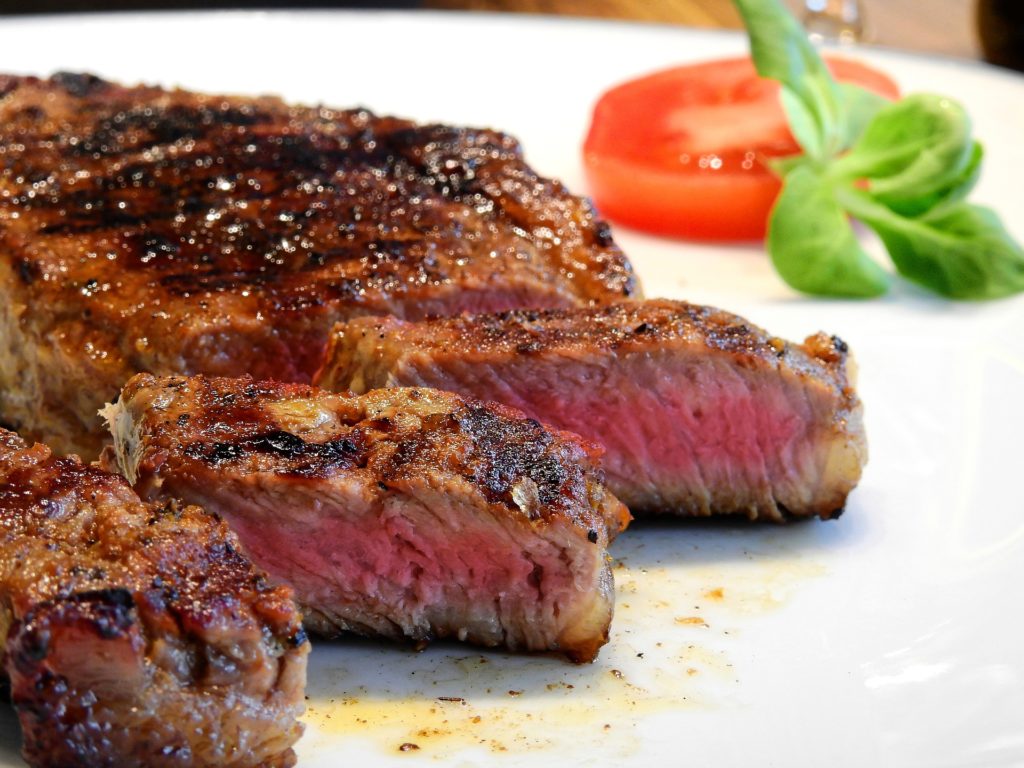What is Vitamin B12?
Vitamin B12 (also called cobalamin) is a vitamin that is also a micronutrient, meaning we need less than 1 gram daily. Conversely, our macronutrients (fats, carbohydrates and proteins) are needed in amounts greater than 1 gram daily.
B12 is a water-soluble vitamin which means that we aren’t in danger of storing too much and becoming toxic. However, our body does have a store of B12 to avoid deficiency. Generally, adults need 2.4 mcg daily, while pregnant women need 2.6 mcg and lactating women need 2.8 mcg daily. The active forms of Vitamin B12 are adenosylcobalamin (used in energy pathways) and methylcobalamin (used in what is called our methylation pathways).
Why do we need Vitamin B12?
Vitamin B12 is essential for:
- Metabolic pathways that produce energy
- Brain function and the nervous system
- Regulating DNA and formation of our red blood cells.
- Methylation pathways – B12 serves as a cofactor (or helper) for the production of the amino acid methionine and SAMe, which is our universal methyl donor.
An easy way to think of methylation and de-methylation is to think of them as various switches throughout the body that can be turned off or on as needed. This process is involved in detoxification, DNA expression/regulation, reproductive, cardiovascular and brain health as well as neurotransmitter synthesis. It’s involved in changing DNA activity without changing its sequence, a process called epigenetics. Research is beginning to show that diet, environment and lifestyle can cause epigenetic changes in DNA that impacts disease risk.
What foods contain Vitamin B12?
Vitamin B12 is found naturally in:
- Animal meats like beef, pork, poultry, fish
- Dairy products (cheese, milk and yogurt)
- Mushrooms
- Eggs
- Nutritional yeast – A great vegetarian/vegan source of Vitamin B12 which has an umami flavor and is dairy free
Vitamin B12 is also often added to fortified products like soymilk or breakfast cereals. Vitamin B12 is also synthesized by the healthy bacteria that reside in the microbiome!
The B12/Folate Connection
Vitamin B12 and Folate work synergistically within the methylation cycle to promote proper methylation. They are needed to produce our universal methyl donor, SAMe which is involved in mood and immune function. Additionally, they are both necessary for healthy red blood cell formation and division. Without enough folate and/or B12, red blood cells become too large and crowd out other healthy cells, causing anemia. One important note is that large amounts of supplemental folate may correct anemia and mask B12 deficiency. However, neurological damage will still occur. Inadequate B12 may also hinder folate’s metabolism to its active form, known as the methyl folate trap. For this reason, we often recommend taking methylfolate and methylcobalamin together, or making sure your folic acid supplementation does not exceed 1,000 mcg daily.
B12 Deficiency
B12 deficiency may occur due to a low dietary intake. Deficiency is common in:
- Vegan diets
- Those with GI disease or malabsorption (which may occur as a result of celiac disease, bariatric surgery or Crohn’s Disease)
- Those taking Proton pump inhibitors, chemotherapy, long term antibiotic use, metformin, oral birth control, anti-seizure medications and bile acid sequestrants
- Elderly populations
Deficiency can also occur due to a condition called atrophic gastritis (either autoimmune or caused by a bacterial infection called H. Pylori) which causes a disease called pernicious anemia. This condition damages the parietal cells in the stomach that are responsible for production of pepsin, intrinsic factor (IF) and hydrochloric acid (stomach acid). In order to be used by the body properly, B12 must be separated from its protein carrier by stomach acid and then attached to IF for absorption. Without these steps, malabsorption and deficiency occurs. It’s notable that supplemental B12 does not need stomach acid to be absorbed, but it does still need to be attached to IF like dietary B12.
Bacterial overgrowth, like SIBO, which may result from other chronic diseases like gastritis, gastroparesis or achlorhydria may also promote B12 deficiency. Bacteria in the small intestine use B12 for their own use before it can be absorbed for the body to use.
Common symptoms of deficiency include:
- Megaloblastic anemia due to larger than normal red blood cells
- Fatigue
- Weakness
- Constipation
- Loss of appetite
- Weight loss
- Numbness/tingling in the extremities.
- Loss of balance
- Sore mouth or tongue
- Depression
- Confusion.
Overt B12 deficiency occurs at levels below 250 pg/mL of serum B12, but elevated homocysteine and methylmalonic acid (MMA) may be better indicators of deficiency. Elevated homocysteine may also be indicative of folate of Vitamin B6 deficiency since homocysteine needs these cofactors to be converted to methionine.
Who should take a B12 supplement?
As mentioned above, those most at risk for B12 deficiency are those in the elderly population, vegans, those with gastrointestinal diseases or those who have had gastrointestinal surgery.
We usually recommend taking B12 sublingually for those with GI disorders and in one of the active forms methylcobalamin/adenosylcobalamin. Many B12 supplements are sold in cyanocobalamin form which must be converted to its active form. Many people notice that the amount in B12 supplements is several 100%s greater than the RDA! This is because absorption from supplements tends to be fairly low.
Sources:
https://ods.od.nih.gov/factsheets/VitaminB12-Consumer/



